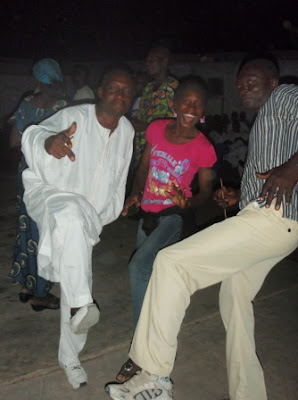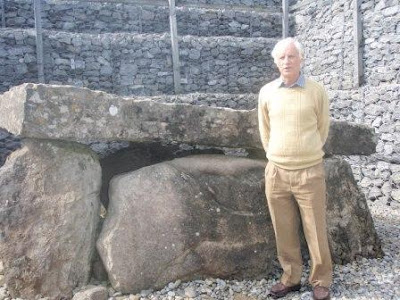I am currently back in Ireland having completed my contract in Maga at the end of May but I have agreed to return in October since VSO has not yet found a replacement for me. Four years of the plan to build the capacities of the council remain and the need for a volunteer is very real. While I have found my work in Maga rewarding and feel that it has made a difference, I think that at this stage it would be good to bring in somebody with fresh ideas and energy. However the council is currently going through a critical phase due to the roll-out of decentralisation in Cameroon so it is vital to have a volunteer there in the coming months. Also if a replacement is found it would be useful to have a face-to-face hand-over. Further, although there has been good progress on some of the projects which I helped to initiate, my presence would be beneficial on this front. The opportunities for adding value both to the council and to the people in Maga are enormous.
We then travelled to West Cameroon to visit Aicha’s family in Foumban and I returned to Ireland in mid-June. For the early weeks I did little more than watch the football World Cup on television. Cameroon’s early exit was not a surprise since although they had good players they were not well prepared. However my allegiance switched to Ghana, the only African team to make it to the knock-out stage, until their unfair exit (reminiscent of Ireland’s unfair exit at the qualifier stage, which was greeted with huge indignation in Cameroon where “la main de Thiery Henry” has since become part of everyday language). Aicha joined me a few weeks later after the usual delay with her visa. She has settled very well, her English is improving all the time and she is making a promising start to golf. The highlight of our visit to Ireland was a trip to Sligo with Ruth, an English volunteer who worked in schools in Maga when I first went there and who has now bravely gone to Afghanistan. We visited various megalithic sites and went to some traditional music sessions. At one of these we were prevailed on to try some set dancing. Aicha took to this like a duck to water and was a big hit with the locals.
Having gone through a collapse of interest and motivation on returning to Ireland, as also happened last year, I am now beginning to think forward to my return to Maga. After struggling through the rainy season in my first year in Maga I decided to skip it in future years. The tragic events in Pouss (see my previous post) give a vivid illustration of how hard and perilous life is there. Latest information gives more than 5,000 made homeless by the storms in addition to the dead and injured and the crop damage. One of the villages where cholera has broken out is in a remote part of the county and the rains cut access to health centres for its sick people and access to markets for its farmers: one of the projects that I have helped to initiate is the building of a “road” through that village which would give such access throughout most of the rainy season. This year’s rainy season is by all accounts exceptionally bad and has caused widespread access problems and power cuts even in Maga, Pouss and Guirvidig, the three biggest villages. 2010 has been a year of extremes, with an exceptionally bad harmattan (wind with dust from the Sahara), exceptionally hot weather from February to May and now exceptionally severe rains and storms. One piece of good news amid the gloom is that state assistance for work on drawing up the council’s development plan, which will give a sound context for development of roads, schools, health centres, provision of wells and piped water, electrification and other infrastructure has come through after years of delay. This is something that I hope to contribute to when I return.






























